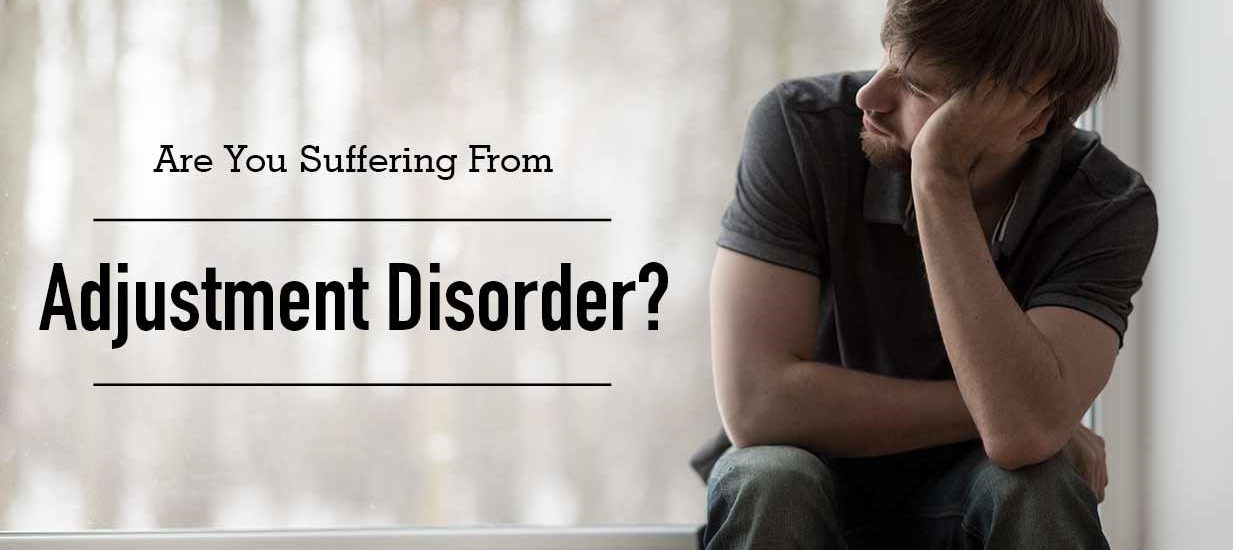


An excessive response to a stressful or traumatic situation is known as adjustment disorder. Relationship problems, employment issues, health changes, and other positive or unpleasant life events can all be considered stressors. Symptoms of adjustment disorder include melancholy, anxiety, trouble getting over the stressful incident, and irresponsible behavior. A single incident, such as a flood or fire, marriage, divorce, starting school, losing a job, or starting a new job, or the confluence of several events, such marital issues, may be the cause of the severe reaction.

The reasons of adjustment disorder might be many. In general, it refers to any circumstance that you find stressful and that seriously interferes with your personal, professional, or social life. They can be both good and bad things. An identifiable stressor (or multiple identifiable stressors) that occur within three to four months might lead to the onset of emotional or behavioral symptoms in individuals with adjustment problem. Adjustment disorder symptoms include:
A few factors could increase your risk of developing an adjustment disorder symptoms.
Stressors or big life transitions can lead to adjustment disorder. Your risk of getting an adjustment reaction may be increased by your temperament, life experiences, and genetics. Economic situations, as well as the accessibility of social support, employment prospects, and leisure activities, may have an impact on how successfully a person responds to stress. Social skills, IQ, heredity, and command of pre-existing coping mechanisms are among the factors that influence an individual’s susceptibility to stressors.
One or more sources of life stress are the root of adjustment reaction. Adults typically experience these difficulties in relation to their marriage, income, or employment issues. Adolescents frequently experience stress from academic or social difficulties, familial strife, parent-parental divorce, or troubles with their sexuality.
It is hypothesized that genetics may contribute to adjustment disorder in some way by affecting how a person handles stress. However, environmental, psychological, and biological factors combine in a complicated way to cause adjustment problems, which are not solely inherited in nature.
There are things we can do to feel better when pressures arise, despite the fact that we have no influence over the environment around us. Strategies consist of:
Enlarge your network of supporters Encourage your family, friends, and any groups you are a part of to support and encourage you during difficult times.
Maintain frequent self-care: Spend some time looking after yourself. Read a book, write in a notebook, take a hot bath, go on a walk, or engage in some pet playtime. Spend some time by yourself. Take actions that will improve your mood and make you joyful. Schedule regular “me time” in your calendar.
People frequently feel depressed and despairing. They could cry without cause and stop taking pleasure in the things they used to like. Feelings of melancholy, hopelessness, sobbing, and a lack of joy from formerly enjoyable activities are among symptoms.
This kind of adjustment disorder is characterized by feelings of unwarranted anxiety or worry, attention difficulties, and ongoing overwhelm.
Your general emotional state or mood, which affects your capacity to operate, is twisted or discordant with your circumstances if you have a mood disorder. You may be clinically depressed if you feel hopeless, empty, or irritated, or you may experience bouts of despair interspersed with exaggerated happiness (mania).
This may be demonstrated by risk-taking behaviors including picking fights at school, skipping class or work, stealing, vandalizing property, or dangerous driving. Behavioral problems including acting rebellious, destructive, careless, or impulsively are symptoms.
It’s very normal to have these emotions occasionally, especially in harsh or challenging life circumstances. However, prolonged feelings of melancholy and emptiness especially when they don’t appear to be affected by happy occurrences or changes in your environment can be signs of depression. Anxiety disorders extend beyond concerns about unforeseen or difficult life events. Your anxiety can be centered on more commonplace issues like your relationships, academic and professional performance, or health.
Adjustment disorder unspecified refers to cases of adjustment disorder that do not fit into one of the categories mentioned above. Physical symptoms like headaches, body aches, stomach aches, heart palpitations, or insomnia are examples of symptoms.
When a stressor is present and the condition disappears when the stressor disappears, adjustment problem is diagnosed. This diagnosis requires that the disease stop six months after the initiating incident. There need not be a specific stressor to cause major depression event generalized anxiety disorder, and symptoms might last for a long time.
Adjustment disorder treatment tackles the stressor(s) that individuals encounter, assists them in defining their goals, and improves their coping mechanisms. Treatment for adjustment disorders is typically brief and time-limited.
There are several types of therapy for adjustment disorders. They include: